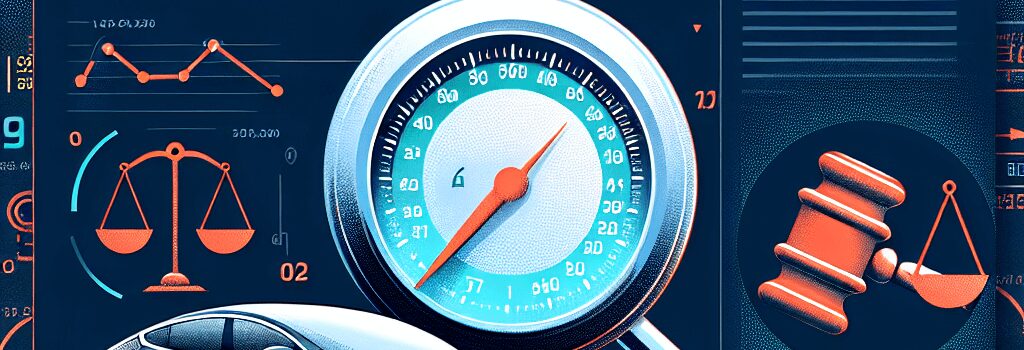Tesla’s Predictive Odometer: Controversy & Warranty Issues

Introduction
Tesla is once again under the spotlight as a new lawsuit in California accuses the electric automaker of using predictive algorithms that allegedly manipulate odometer readings. This practice, if proven, could prematurely void warranties and misrepresent the true mileage of the vehicles. The legal challenge, led by Nyree Hinton, adds to a string of controversies noted in previous cases where Tesla faced allegations of overstating efficiency and misinforming customers about the safety and range performance of its vehicles.
Background of the Legal Dispute
The lawsuit claims that Hinton, the lead plaintiff, experienced a significant discrepancy in her used Model Y’s mileage readings. Initially purchased with under 37,000 miles, her vehicle’s odometer inexplicably jumped past the 50,000-mile mark within six months—the point at which its bumper-to-bumper warranty expires. Hinton reported a difference of over 13,000 miles against her previous vehicles, which averaged only around 6,000 miles in the same duration. Furthermore, when her commute increased the following year, the car appeared to record 800 fewer miles per month once the warranty period had expired, raising serious concerns about the consistency of the data.
Technical Deep Dive: The Role of Predictive Algorithms
Tesla’s alleged system goes beyond a conventional odometer. Instead of merely counting wheel rotations, the odometer reportedly integrates predictive algorithms that analyze energy consumption patterns, sensor data, and driver behavior. Such systems leverage machine learning techniques to anticipate vehicle dynamics and energy loss. However, this technology raises the possibility of algorithmic bias if the predictions skew the displayed mileage. Technical questions include:
- How are energy consumption metrics quantified and what sensors are involved?
- What types of data inputs are used to weight driver behavior, and how might this affect mileage accumulation?
- Are there periodic recalibrations, and if so, how is consistency maintained over time?
These technical inquiries call for a detailed examination of Tesla’s software routines and the underlying statistical models, which could differ significantly from the simpler mechanisms used in traditional odometers.
Comparative Analysis: Predictive Odometers vs. Traditional Odometers
Unlike conventional mechanical odometers that rely on fixed gear rotations and are nearly immune to estimation errors, Tesla’s system employs a hybrid model that incorporates real-time data and algorithmic forecasts. While such innovation can improve energy management and efficiency readings, it also opens the door to discrepancies in actual versus reported mileage. In traditional systems, wear and tear coupled with physical sensor failures are the primary sources of inaccuracy, whereas Tesla’s method might experience algorithmic drift—where the predictive model gradually diverges from real-world data without periodic updates.
Warranty Implications and Legal Ramifications
From a legal standpoint, the accuracy of mileage readings is critical. Hinton’s case alleges that the car’s odometer inflates mileage—reportedly anywhere from 15% to 117% above expected figures—thus causing premature expiration of warranties. This is not an isolated incident; similar complaints have circulated on platforms like Reddit, urging further investigations. Previous judicial outcomes, such as the decision requiring individual arbitration in the so-called “exaggerated range case,” suggest that class-action lawsuits might face significant procedural hurdles. The implications for consumer protection and product liability are profound, potentially calling for a reevaluation of warranty terms if algorithm-induced discrepancies are confirmed.
Expert Opinions and Industry Insights
Automotive experts and software engineers urge scrutiny of Tesla’s odometer implementation. Dr. Elena Ramirez, a specialist in vehicular AI systems, notes, “While the integration of machine learning into automotive systems is promising, any system that dynamically alters key metrics like mileage requires rigorous validation. Even minor biases in the algorithms can lead to significant real-world discrepancies over time.” Similarly, cybersecurity analyst Marcus Lee has raised concerns about the opacity of Tesla’s software updates and their impact on system performance, stressing that transparency in algorithmic functioning is essential for consumer trust.
Future Perspectives and Regulatory Considerations
Looking ahead, the controversy surrounding Tesla’s odometer system might prompt regulatory bodies to set standards for software-driven metrics in electric vehicles. As automakers increasingly rely on AI and sensor-based algorithms to optimize performance and efficiency, regulators may consider new guidelines to ensure these systems do not mislead consumers. There is an emerging consensus that greater oversight on algorithmic accountability could benefit not only Tesla owners but the broader automotive industry as it embraces more sophisticated digital tools.
Conclusion
The ongoing lawsuit against Tesla underscores a critical intersection between advanced vehicle technologies and consumer rights. It serves as a reminder that while innovation drives progress, it must be paired with rigorous validation and regulatory oversight. As more stakeholders, including experts and regulators, weigh in on the issue, the outcome of this legal battle could have far-reaching implications for how digital metrics in automotive systems are managed and regulated in the future.